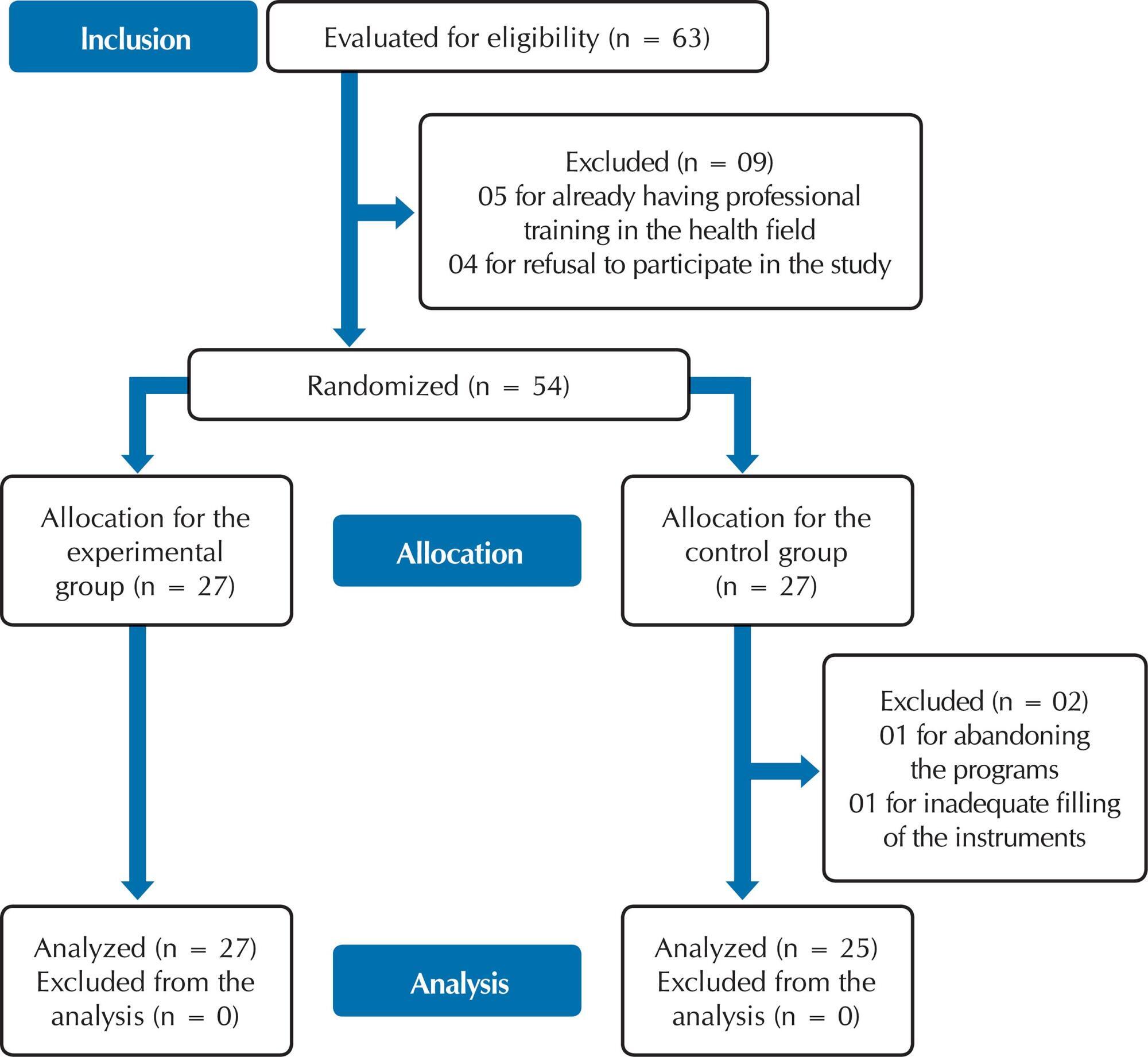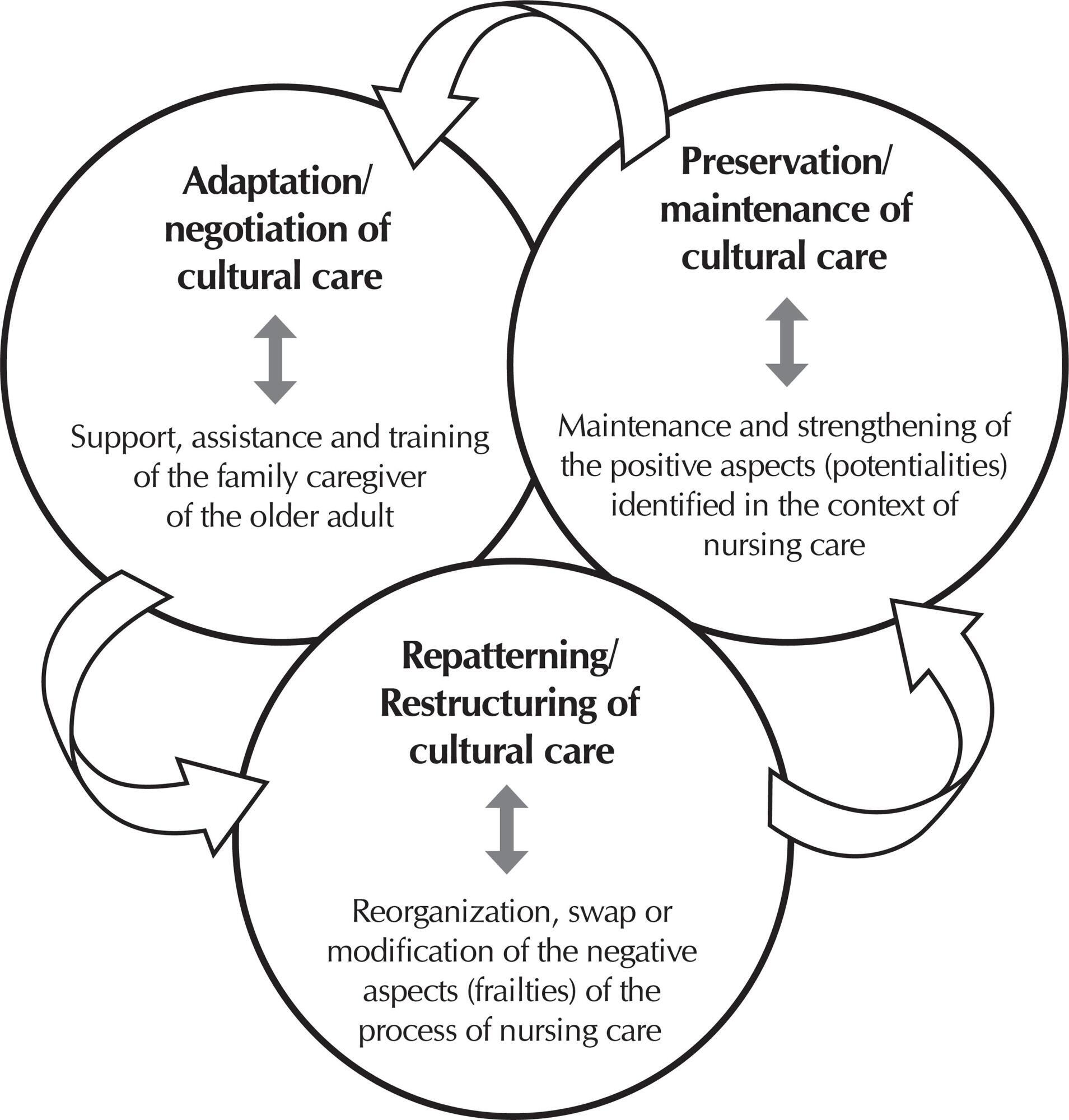-
RESEARCH01-01-2018
Validation of instrument to assess software of patients’ risk classification
Revista Brasileira de Enfermagem. 2018;71(3):975-982
Abstract
RESEARCHValidation of instrument to assess software of patients’ risk classification
Revista Brasileira de Enfermagem. 2018;71(3):975-982
DOI 10.1590/0034-7167-2017-0053
Views0See moreABSTRACT
Objective:
Validate the content of an instrument that assesses the quality of a software applied to the risk classification of patients.
Method:
Methodological study, conducted in three stages: adaptation of the instrument, content validation through Delphi technique and pre-test. The results were analyzed through Content Validity Index, Overall Content Validity Index and Inter-rater Reliability.
Results:
The final version of the instrument comprises 8 characteristics and 28 sub-characteristics, being 37 general questions to computer experts and nurse and 7 specific questions to computer experts, including 1 question and excluding 3 questions of the original instrument. We obtained Overall Content Validity of 92% and Inter-rater Reliability of 100% in the second Delphi round.
Final considerations:
The instrument has content validity, allowing to assess the technical quality and functional performance of the software applied to the risk classification of patients.
-
RESEARCH01-01-2018
Stress of nursing students in clinical simulation: a randomized clinical trial
Revista Brasileira de Enfermagem. 2018;71(3):967-974
Abstract
RESEARCHStress of nursing students in clinical simulation: a randomized clinical trial
Revista Brasileira de Enfermagem. 2018;71(3):967-974
DOI 10.1590/0034-7167-2017-0187
Views0See moreABSTRACT
Objective:
To evaluate and compare the perception of stressors by nursing students before and after a high-fidelity clinical simulation or conventional laboratory practice class.
Method:
This is a randomized clinical trial conducted with 52 nursing students. Both groups had theoretical classes about cardiothoracic physical examination, followed by practice class in skill laboratory. In addition, the experimental group took part in a high-fidelity simulation scenario. Stressors were evaluated before and after class, with the application of KEZKAK questionnaire.
Results:
The experimental group was significantly more worried about six factors related to lack of competence and to interpersonal relationships (p < 0.05), while the control group was significantly more worried about being in contact with suffering (p = 0.0315).
Conclusion:
The simulation affects students’ perception of stressors and promotes their self-evaluation and critical thinking regarding the responsibility that comes with their learning.

-
RESEARCH01-01-2018
Family caregiver of older adults and Cultural Care in Nursing care
Revista Brasileira de Enfermagem. 2018;71(3):959-966
Abstract
RESEARCHFamily caregiver of older adults and Cultural Care in Nursing care
Revista Brasileira de Enfermagem. 2018;71(3):959-966
DOI 10.1590/0034-7167-2017-0105
Views0See moreABSTRACT
Objective:
To analyze the experiences of family caregivers of dependent older adults, who show performance overload and emotional distress, using the Theory of Culture Care.
Method:
Qualitative study with nine caregivers of home care dependent older adults, based on Grounded Theory.
Results:
The findings allowed the identification of potentialities and frailties in the context of family home care and subsidizing the construction of a theoretical scheme resulting from the analysis of possibilities of the nursing care practice according to the culture, through the three modes of action: maintenance, adjustment and repatterning of cultural care.
Final considerations:
Respecting the cultural values and family beliefs, the nurse can help to institute mutually established changes, promoting a better quality in the nursing care relationship and a relief to the strain of the role of the caregiver.

-
RESEARCH01-01-2018
Nursing team communication in a medical ward
Revista Brasileira de Enfermagem. 2018;71(3):951-958
Abstract
RESEARCHNursing team communication in a medical ward
Revista Brasileira de Enfermagem. 2018;71(3):951-958
DOI 10.1590/0034-7167-2017-0208
Views1See moreABSTRACT
Objective:
To describe the essential elements that make the nursing team communication process effective, and to analyze such elements in the light of two main theorists, Berlo and King.
Method:
This is a qualitative study of assistant convergent research approach. The data production technique was the semi-structured interview, with 25 nursing professionals from a public hospital. Data were analyzed with thematic content techniques.
Results:
The main element of consolidation of the communication process and interpersonal relationship, with consequent interaction, is the dialogue, which is guided by emotions, feelings, and team integration.
Conclusion:
The communication process and the interpersonal relationship reach their objectives and the reciprocal understanding expected when there is effective dialogue, validated by the source and receiver of the processes, with consequent interaction.
-
RESEARCH01-01-2018
Assessment of health/functioning of older adults who consume psychoactive substances
Revista Brasileira de Enfermagem. 2018;71(3):942-950
Abstract
RESEARCHAssessment of health/functioning of older adults who consume psychoactive substances
Revista Brasileira de Enfermagem. 2018;71(3):942-950
DOI 10.1590/0034-7167-2016-0637
Views0See moreABSTRACT
Objective:
To assess the health/functioning of the older adult who consumes psychoactive substances through the International Classification of Functioning, Disability and Health, considering the theory of complexity.
Method:
Qualitative case study, with 11 older adults, held between December 2015 and February 2016 in the state of Rio Grande do Sul, using interviews, documents and non-systematic observation. It was approved by the ethics committee. The analysis followed the propositions of the case study, using the complexity of Morin as theoretical basis.
Results:
We identified older adults who consider themselves healthy and show alterations – the alterations can be exacerbated by the use of psychoactive substances – of health/functioning expected according to the natural course of aging such as: systemic arterial hypertension; depressive symptoms; dizziness; tinnitus; harmed sleep/rest; and inadequate food and water consumption.
Final consideration:
The assessment of health/functioning of older adults who use psychoactive substances, guided by complex thinking, exceeds the accuracy limits to risk the understanding of the phenomena in its complexity.
-
RESEARCH01-01-2018
Impaired comfort in children and adolescents with cancer
Revista Brasileira de Enfermagem. 2018;71(3):934-941
Abstract
RESEARCHImpaired comfort in children and adolescents with cancer
Revista Brasileira de Enfermagem. 2018;71(3):934-941
DOI 10.1590/0034-7167-2017-0050
Views0See moreABSTRACT
Objective:
To determine the strength of the association between the clinical indicators of Impaired Comfort and the evaluation sector in the hospital, age group and sex of patients with cancer.
Method:
Cross-sectional study, conducted in a children’s hospital, with 192 children and adolescents. For the collection, we used an instrument developed for the study.
Results:
The majority of the sample was male, with mean age of 11 years. The indicators most evidenced among the hospitalized patients were Crying, Report of lack of satisfaction with the situation, Report of feeling cold, and Report of feeling uncomfortable. Crying and Fear were more prevalent in children compared with adolescents, and boys were the ones that verbalized the most the Report of lack of satisfaction with the situation.
Conclusion:
This study enabled determining the strength of the association of the indicators of Impaired Comfort expressed by children and adolescents with cancer.
-
LETTER TO THE EDITOR01-01-2018
Low Burnout among Intensive Care units?
Revista Brasileira de Enfermagem. 2018;71(3):932-933
Abstract
LETTER TO THE EDITORLow Burnout among Intensive Care units?
Revista Brasileira de Enfermagem. 2018;71(3):932-933
DOI 10.1590/0034-7167.2017710302c
Views0Dear Editor,We read with great interest the article of Vasconcelos et al. in a recent issue of the journal(). The authors performed a cross sectional study to analyze the existence of a relationship between burnout and depressive symptoms among intensive care unit nursing staff. They demonstrated that burnout was present in 14.29% of the nurses […]See more
Search
Search in:
Nuvem de Tags
Enfermagem (930)Cuidados de Enfermagem (269)Atenção Primária à Saúde (239)Idoso (208)Educação em Enfermagem (151)Segurança do Paciente (150)Saúde Mental (145)Educação em Saúde (139)Estudos de Validação (131)Qualidade de Vida (104)Tecnologia Educacional (100)Promoção da Saúde (99)COVID-19 (91)Criança (91)Família (87)Enfermagem Pediátrica (86)Saúde do Trabalhador (86)Adolescente (85)Saúde Pública (82)Estudantes de Enfermagem (77)







